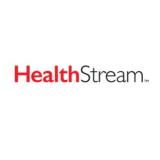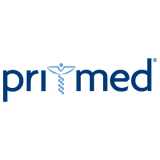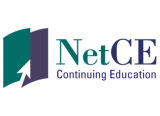Did you mean: pharmacologic ?
DEA MATE Opioid and Substance Use for Practitioners

This course meets the 8-hour training requirement for Drug Enforcement Administration (DEA) registered practitioners such as physicians, physician assistants, nurse practitioners, dentists, and others relevant to the Medication Access and Training Expansion (MATE) Act (Section 1263 of the Consoli
Category
Format
Credits
- 8.00 AMA PRA Category 1 Credit™
- 8.00 ANCC
Mind Over Memory: Strategies for Increasing Early Identification of Alzheimer Disease from a Dementia Specialist

In this podcast, expert faculty bring you insights from the evolving area of Alzheimer disease diagnosis, including strategies for improving identification of cognitive decline and incorporating evidence-based tools in screening.
Category
Format
- Podcast
Credits
- 0.48 AANP Contact Hours
- 0.50 AMA PRA Category 1 Credit™
American Addiction

Learn about combating substance use disorder, opioids, medication-assisted treatments, and more in this comprehensive course for healthcare professionals.
Category
Format
- Self-study / Enduring
Credits
- 1.50 AMA PRA Category 1 Credit™
- 1.50 ANCC
A Comprehensive Approach to Obesity Management

In this podcast expert faculty will discuss the Obesity Medicine Association’s 4 pillars of clinical obesity treatment as a comprehensive, evidence-based approach to management, comprised of nutrition, physical activity, behavior, and medication.
Category
- Weight Management
Format
- Podcast
Credits
- 0.60 AANP Contact Hours
- 0.50 AMA PRA Category 1 Credit™
Substance Use Disorders and Pain Management: MATE Act Training

Substance use disorders continue to be an important health issue in the United States and can lead to significant problems in all aspects of a person's life. Appropriate assessment and management of substance use is a priority in patient care.
Category
Format
- Self-study / Enduring
Credits
- 8.00 AANP Pharmacology Contact Hours
- 8.00 MOC
- 8.00 AMA PRA Category 1 Credit™
- 8.00 ANCC
Prescription Opioids and Pain Management: The Tennessee Guidelines

Opioid analgesic medications can bring substantial relief to patients suffering from pain.
Category
Format
- Self-study / Enduring
Credits
- 2.00 AMA PRA Category 1 Credit™
- 2.00 ANCC
- 2.00 Contact hours
Treating Postoperative Pain: A Better Way

You might be surprised that your post-operative patients require fewer oral pain medications than you think. Many patients are first exposed to opioids in a surgical setting.
Category
Format
- Self-study / Enduring
Credits
- 1.00 AMA PRA Category 1 Credit™
Moderate Sedation

Changes in the delivery of health care and advances in technology have moved many surgical procedures out of the traditional operating room. As such, physicians in a wide variety of settings are increasingly using moderate sedation/analgesia (often referred to as conscious sedation).
Category
Format
- Self-study / Enduring
Credits
- 5.00 AMA PRA Category 1 Credit™
What Strategies Can PCPs Use to Improve Communication About Obesity with Patients?

Engaging in patient-centered communication when discussing obesity is a crucial step toward helping your patients reach their weight-management goals.
Category
- Weight Management
Format
- Self-study / Enduring
Credits
- 0.42 AANP Contact Hours
- 0.50 AMA PRA Category 1 Credit™
A 57-Year-Old Man with T2DM, Obesity, Hypertension, CKD, and a Family History of ASCVD

Through this patient case, you’ll gain valuable knowledge on how to avoid therapeutic inertia when treating people with type 2 diabetes mellitus (T2DM) and comorbid conditions. Come away with strategies for creating treatment plans that fully consider your patients’ needs.
Category
- Diabetes Mellitus (DM)
- Hypertension
Format
- Self-study / Enduring
Credits
- 0.45 AANP Contact Hours
- 0.50 AMA PRA Category 1 Credit™

 Facebook
Facebook Twitter
Twitter LinkedIn
LinkedIn Forward
Forward